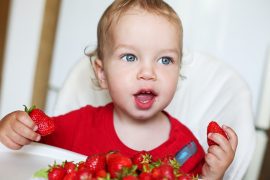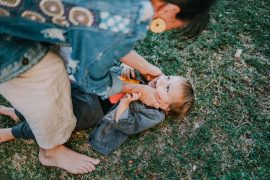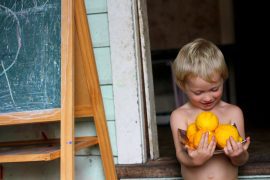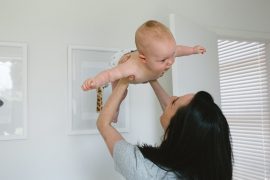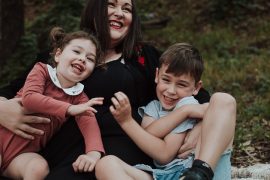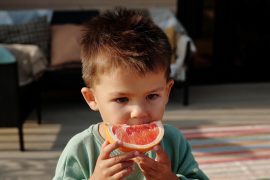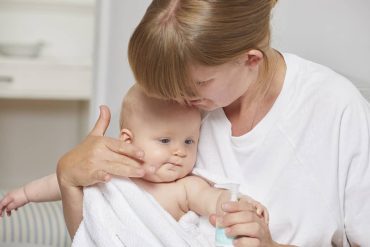4. Children learn to manage their emotions — and thus their behavior — when parents emotion-coach.
Decades of research show clearly that when parents emotion-coach (instead of shutting down emotions), kids are healthier and more successful in every way. Emotion-coaching means the parent notices the child’s emotions and sees them as an opportunity for intimacy or teaching. The parent acknowledges the child’s perspective and empathizes. Once the child has had a chance to express the emotion, the parent supports the child to problem-solve.
Why is emotion-coaching so important? Because the parent helps the child feel safe enough to feel the emotions, so they can be experienced and begin to dissipate. The child learns that emotions aren’t dangerous and can be managed.
Kids who are uncooperative, angry or fearful are signaling that they need us to “witness” their feelings by letting them be upset in our loving presence. Children who know their feelings are “allowed” don’t store them up, so they’re better able to manage their emotions and behavior.
So if you’re connecting with your child, and setting limits with plenty of empathy, and your child is still acting out, she’s signaling you that she needs help with her emotions. (For more on helping kids when they’re angry, see What if your child gets angry, but never breaks through to tears?)
5. Children learn what they live.
This is simple. If we’re considerate and respectful to a child, they become respectful, considerate people. Kids who are rude and disrespectful learned it somewhere; if they bring it into the house and we politely remind them that we don’t relate that way, they don’t adopt that style. If we yell at them, they learn to yell, and they’ll be yelling back at us by the time they’re eight. Ultimately, what your children experience as they grow up with you will depend on who you are, and that will be more important than any parenting philosophy.
Easy? No. This kind of parenting requires you to manage your own emotions. That’s the hardest work there is.
But giving your kids a good start in life means you’re sending ripples for generations into the future. Not just your children, but their children, and their children, and their children. Imagine all those happy, compassionate, self-disciplined people, all flourishing and making the world a better place, because of you. They’re all waving to you from the future, saying Thank You.
Want more info on these ideas?
There are countless studies that together have shaped this approach to parenting, and more are being published every day. Many are cited in my book, Peaceful Parent, Happy Kids: How to Stop Yelling and Start Connecting. Here are some other books that focus on specific areas; all are well-researched and easily available.
For more on Attachment Research, a great source is Robert Karen’s book, Becoming Attached: First Relationships and How They Shape Our Capacity to Love. Since attachment researchers have been following kids in some of these studies for many decades now, they have some pretty clear ideas about how attachment affects kids’ development. We know how to develop secure attachment, and we know all the positive effects of it on kids as they grow up — and of course we also know the risks of insecure attachment.
For more on Discipline, a terrific source is Alfie Kohn’s book, Unconditional Parenting: Moving from Rewards and Punishments to Love and Reason. Kohn lists extensive citations that serve as a review of the literature on the effect of various styles of discipline.
For more on Emotional Intelligence, check out John Gottman’s Raising An Emotionally Intelligent Child: The Heart of Parenting. Gottman has been following couples in his love lab for long enough that he is now seeing their children. So he’s seen how various parenting practices affect kids’ emotional development.
Watch Dr. Laura’s video: Top Five Rules For Raising Great Kids
Find the original article here.
Dr. Laura Markham, founder of AhaParenting.com and author of Peaceful Parent, Happy Kids, Peaceful Parent, Happy Siblings and her latest book, the Peaceful Parent, Happy Kids Workbook.

